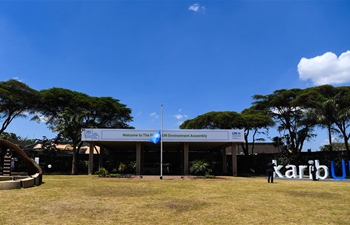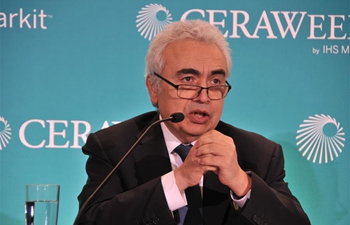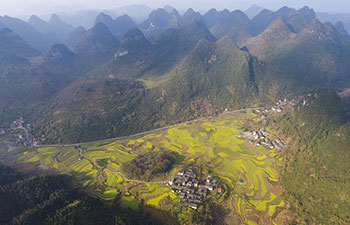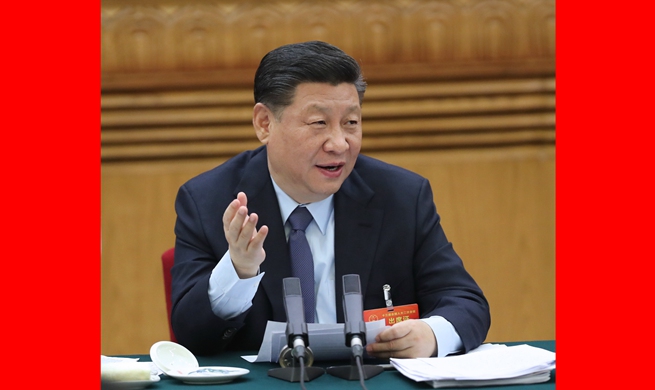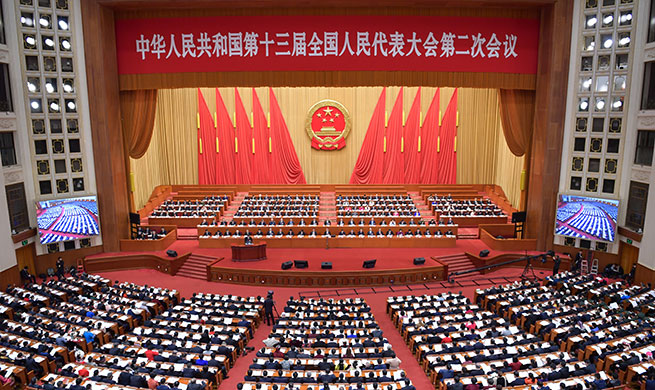MANILA, March 12 (Xinhua) -- The Philippine Statistics Authority (PSA) reported on Tuesday that the country's merchandise trade grew 2.9 percent, reaching 14.3 billion U.S. dollars in January, reversing the negative outturn in December 2018.
The PSA said January's trade performance was largely due to a rebound in imports, which grew 5.8 percent, supported by increases in the import values of consumer goods, capital goods, and raw materials and intermediate goods.
Exports, meanwhile, recorded a 1.7-percent drop at a slower pace as lower receipts from manufactures and minerals offset the gains in exports of forest and total agro-based products, the PSA added.
The state planning agency National Economic and Development Authority (NEDA) said the government should step up efforts to strengthen relations with trade partners to further increase market access amid easing global demand.
"The Department of Agriculture is currently in talks with Singapore, Russia, and Monaco for possible arrangements to increase Philippine agricultural export products to these countries," Socioeconomic Planning Secretary and NEDA's Director-General Ernesto Pernia said.
He said exporters are also strongly encouraged to explore opportunities in emerging sectors and to respond to increasing market demand for other non-traditional exports to broaden exports base.
"Also, the likely conclusion of the Regional Comprehensive Economic Partnership (RCEP) agreement this year will be a welcome development," Pernia said.
"The RCEP would significantly benefit exporters considering that its member economies, which include the 10 ASEAN countries, Australia, China, India, Japan, South Korea and New Zealand, constitute a third of global output and more than a quarter of the world's population," Pernia noted.
Meanwhile, Pernia added that imports growth is still seen to be constrained by the delayed approval of the 2019 national budget and the election-spending ban.
"The importation of raw materials is likely to be affected by the holdback in the implementation of numerous projects under government's 'Build, Build, Build' program," Pernia said.
Nonetheless, the Philippines' economic team -- the NEDA, the Department of Finance and the Department of Budget and Management -- has formally requested the Commission on Elections to exempt at least 145 priority infrastructure projects from the election ban to minimize delays while mitigating its effects on economic growth.
The Philippines will hold a midterm election on May 13. The Commission on Elections will enforce a ban on construction of public works, as well as the release, disbursement and expenditure of public funds from March 29 to May 12 in line with the election.

